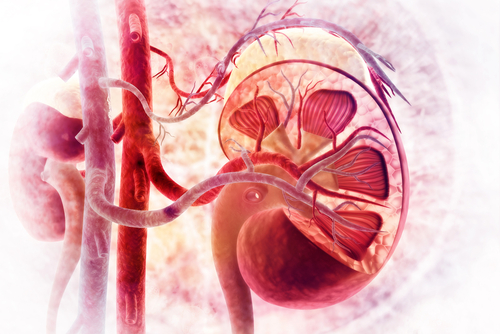Protein Levels in Blood and Urine Can Signal That AAV Is Affecting Kidneys, Study Finds

Measuring levels of protein CD25 in blood and urine can help determine if ANCA-associated vasculitis is affecting patients’ kidneys, a study suggests.
A research team published the study in the journal Nephrology Dialysis Transplantation. The title is “Urinary and serum soluble CD25 complements urinary soluble CD163 to detect active renal anti-neutrophil cytoplasmic autoantibody-associated vasculitis: a cohort study.”
The full scientific name of ANCA-associated vasculitis is anti-neutrophil cytoplasmic autoantibody-associated vasculitis, or AAV.
AAV causes inflamed kidney blood vessels in roughly 70% of patients. The inflammation is associated with worse kidney function and worse overall outcomes. Detecting whether AAV is affecting patients’ kidneys is crucial to starting therapy to limit the damage.
Researchers have identified biomarkers that can identify patients with active kidney vasculitis. One is CD163, which is caused by macrophages, a kind of immune cell that infiltrates the kidneys and causes damage. But 13% to 27% of AAV patients with kidney problems test negative for the biomarker.
Researchers wanted to see if another protein, CD25, could detect kidney flare-ups in AAV patients. CD25 can detect the activation of another kind of immune cell — T-cells.
The team analyzed blood and urine samples from 72 patients with active kidney AAV, 20 with an active extrarenal disease, 62 who were in remission, and 18 healthy controls.
Patients with active renal vasculitis had significantly higher levels of CD25 in their blood than patients in remission or controls. A significant decrease was seen in patients who achieved remission after induction therapy.
CD25 levels were also significantly higher in the urine samples of patients with active renal vasculitis, compared with controls. These levels also decreased significantly upon remission.
CD25 is released from activated T-cells. Researchers discovered that CD25 levels in urine correlated with the number of CD4+ T-cells, a sign of whether a renal vasculitis disease is active.
The results suggested that levels of CD25 in urine or blood can help identify active kidney vasculitis and can be used as a complementary strategy to CD163 levels in urine.
“Although high levels of usCD163 [urine soluble CD163] reflect active renal vasculitis, between 13% and 27% of the patients with active renal vasculitis test negative,” the researchers wrote.
Overall, these results “suggest that elevated usCD25 [urine soluble CD25] and ssCD25 [blood soluble CD25] levels reflect an earlier stage of development of renal vasculitis in AAV patients, which could be of clinical importance as an early sign of active disease,” the study concluded.





